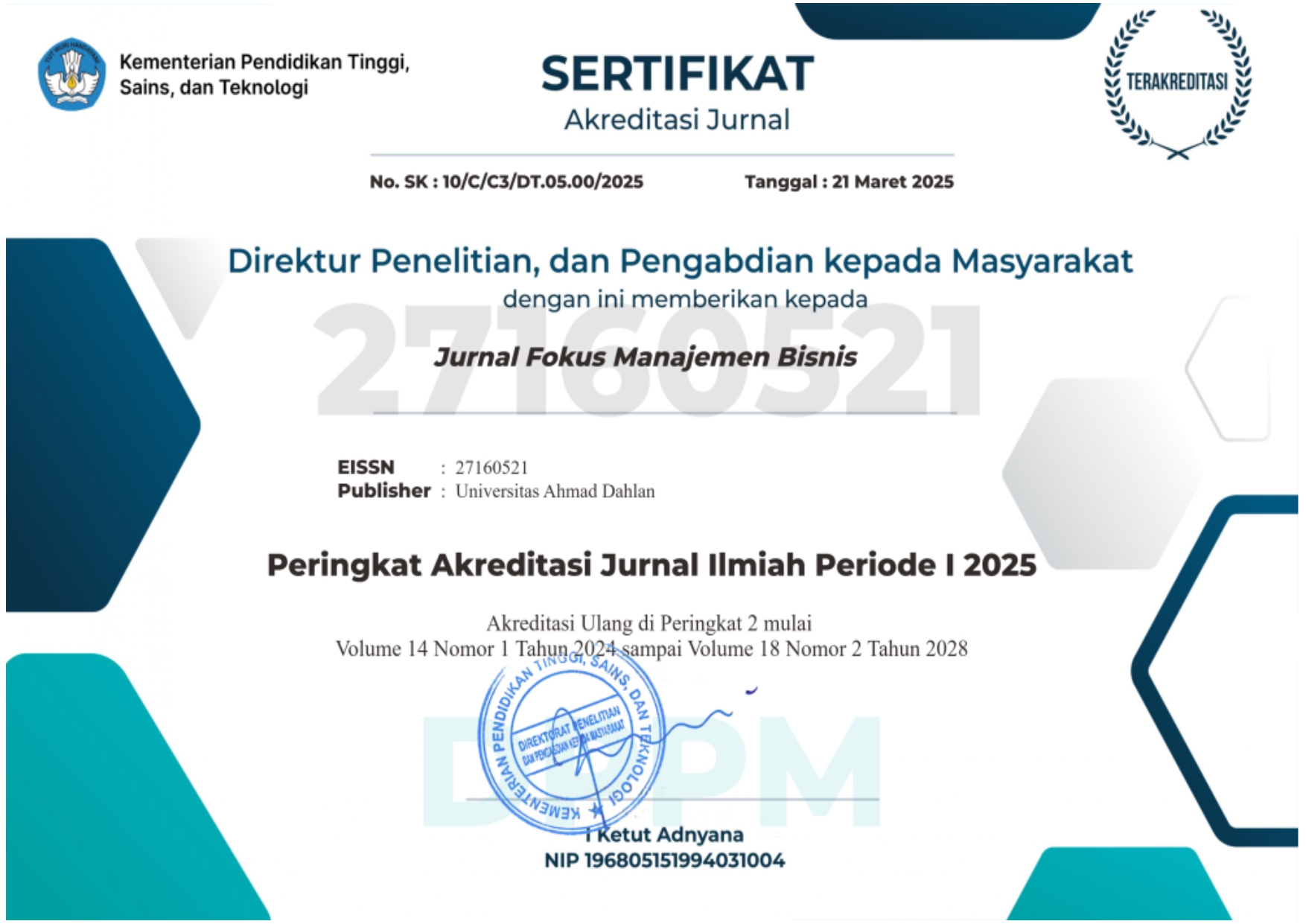ANALISIS EFISIENSI PASAR MODAL SYARI’AH DAN KONVENSIONAL BENTUK LEMAH BURSA EFEK INDONESIA
DOI:
https://doi.org/10.12928/fokus.v4i1.1351Keywords:
Conventional and Islamic Capital Markets, LQ45, JII, Form WeakAbstract
The analysis in this study was to test the efficiency of the Indonesian capital market in the form of weak. this research has two objeactives, the first objectives is analyze whether Indonesia capital market (convensional and syari’ah) has been efficient (weak-form). The second one is to analyze differentiation efficient market between convensional and syari’ah capital market. This study uses monthly stock price data, from 23 conventional stocks included in the index LQ45 and 2 Islamic stocks included in the index during the observation period 2012-2013 JII. To test the hypothesis efficiency of capital markets weak form using the Run Test, this test is used to test randomness stock price changes. Results from this study are in the period 2012-2013 of conventional and islamic capital market is efficient in the weak form and analyze by looking for a random number of shares on the capital market conventional and islamic capital market, the results showed that there were 22 (95.7%) share price conventional random and 2 (100%) the share price of sharia are random. Based on the analysis of Islamic capital markets more efficient than the conventional capital market.Downloads
Published
2014-03-31
How to Cite
Mujisukamto, A. T., & Sutanto, A. (2014). ANALISIS EFISIENSI PASAR MODAL SYARI’AH DAN KONVENSIONAL BENTUK LEMAH BURSA EFEK INDONESIA. Jurnal Fokus Manajemen Bisnis, 4(1), 65–73. https://doi.org/10.12928/fokus.v4i1.1351
Issue
Section
Articles
License
Authors who publish with this journal agree to the following terms:Â
- Authors retain copyright and grant the journal right of first publication with the work simultaneously licensed under a Creative Commons Attribution License that allows others to share the work with an acknowledgment of the work's authorship and initial publication in this journal.
- Authors are able to enter into separate, additional contractual arrangements for the non-exclusive distribution of the journal's published version of the work (e.g., post it to an institutional repository or publish it in a book), with an acknowledgment of its initial publication in this journal.
- Authors are permitted and encouraged to post their work online (e.g., in institutional repositories or on their website) prior to and during the submission process, as it can lead to productive exchanges, as well as earlier and greater citation of published work (See The Effect of Open Access).






